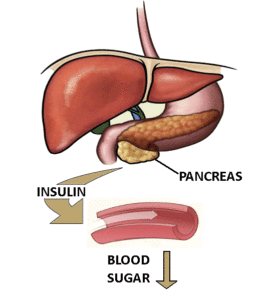 Type 1 diabetes, which present from childhood, is a chronic condition wherein the pancreas makes an inadequate amount of insulin, if any. This autoimmune disease can lead to excess sugar build up if not treated properly. As a result, those with Type 1 diabetes usually take daily synthetic insulin and monitor their blood sugar levels regularly to ensure that sugar levels stay in a normal range. Unfortunately, the insulin-delivery systems that are used for Type 1 diabetes management require individualized insulin regimens and can therefore be laborious to use and to use correctly.
Type 1 diabetes, which present from childhood, is a chronic condition wherein the pancreas makes an inadequate amount of insulin, if any. This autoimmune disease can lead to excess sugar build up if not treated properly. As a result, those with Type 1 diabetes usually take daily synthetic insulin and monitor their blood sugar levels regularly to ensure that sugar levels stay in a normal range. Unfortunately, the insulin-delivery systems that are used for Type 1 diabetes management require individualized insulin regimens and can therefore be laborious to use and to use correctly.
Recently, research into the potential value of a bionic pancreas for those with Type 1 diabetes has accelerated. A new study, published in the New England Journal of Medicine, describes the result of a 13-week randomized trial in which 219 Type 1 diabetes patients aged 6 to 79 received either standard care or treatment with a bionic pancreas. Those who were treated with the bionic pancreas received either insulin aspart or insulin lispro. Researchers and physicians evaluated the impact of each treatment option on glycated hemoglobin levels to determine how often glucose levels were found to be at or below 54 mg per deciliter.
While the glycated hemoglobin level did not change in the standard care group, it decreased from, 7.9% to 7.3% in the bionic-pancreas group. However, the time at which glucose levels were at or below 54 mg per deciliter did not differ between the standard care and bionic pancreas groups. Nonetheless, because the bionic pancreas was associated with a greater reduction in glycated hemoglobin levels than occurred with standard care, the potential for a bionic pancreas to improve management of Type 1 diabetes should be further explored.
Reference
Russell SJ, Beck RW, Damiano ER, et al. Multicenter, Randomized Trial of a Bionic Pancreas in Type 1 Diabetes. https://doi.org/101056/NEJMoa2205225. 2022;387(13):1161-1172. doi:10.1056/NEJMOA2205225
